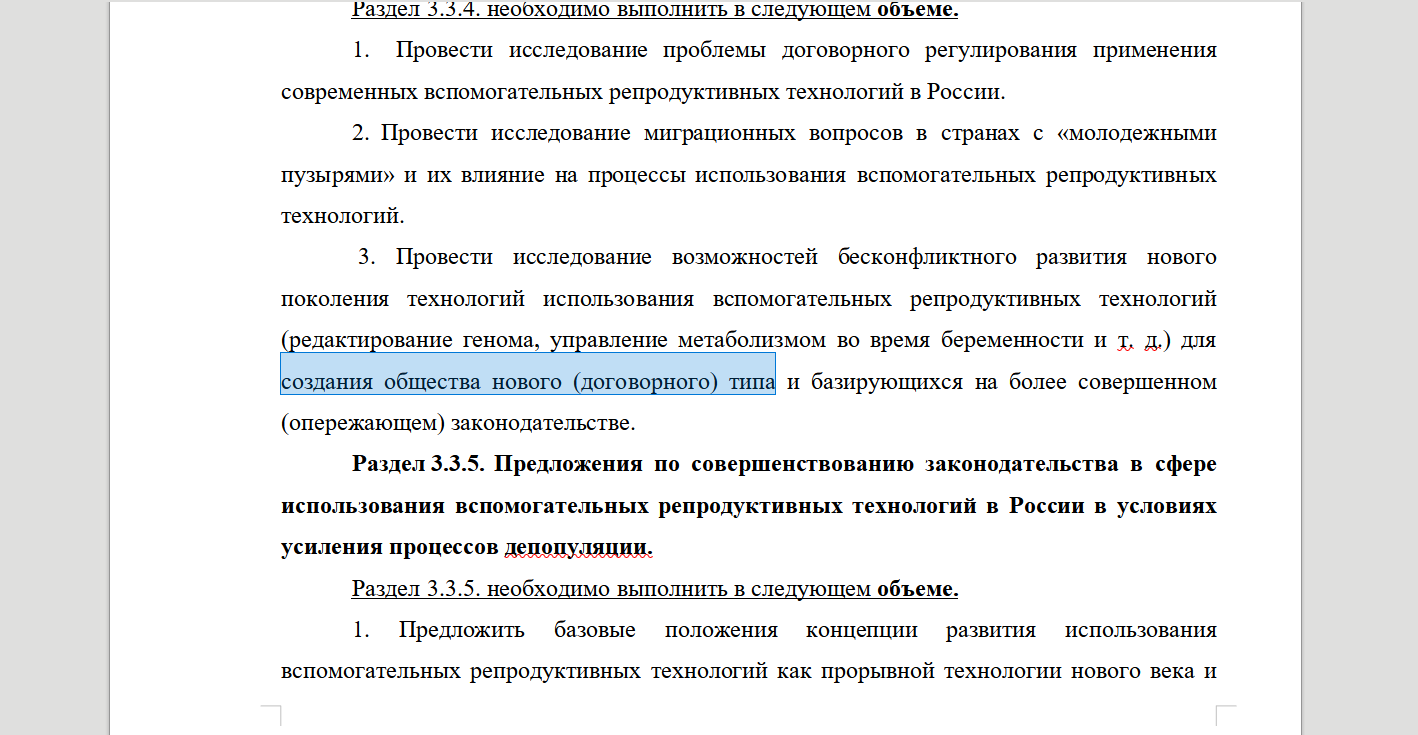In 2019, Russia studied how to create "a new type of society" using genome editing
Russia's State Duma explored "conflict-free" strategies for introducing new technologies with "problematic aspects in the social, legal, ethical and religious spheres."

In August 2019—just a few months before governments began peddling the World Economic Forum’s transhumanist utopian snake oil as an antidote to The Virus—Russia’s State Duma posed a very intriguing (one might say very timely!) question: How can we completely transform society using genome editing, but without breaking the law and without pissing everyone off?
Since answering this question required legal and ethical considerations—topics that few Russian lawmakers are interested in—the State Duma decided to commission research on the ins-and-outs of upgrading Russia’s archaic “laws” so that humans could be genetically engineered. Offering close to 9 million rubles ($122,000), the legislative body asked for a study that would examine:
… the possibilities of conflict-free development of a new generation of technologies for using assisted reproductive technologies (genome editing, metabolic management during pregnancy, etc.) to create a new (contractual) type of society based on more advanced legislation.
(Genome editing, or gene editing, is a type of genetic engineering in which DNA is inserted, deleted, modified or replaced in the genome of a living organism.)
You can download an archived copy of the official “order” here.
The document acknowledged the “problematic aspects” of playing God, but hoped to find legal loopholes to these minor issues:
“Having many advantages, assisted reproductive technologies in their application have many problematic aspects in the social, legal, ethical and religious spheres. […] Interference with the natural process of conception can induce complex changes in the genetic material,” the document noted.
Legislation in place in most foreign countries, taking into account religious, moral, ethical and legal problems, either prohibits or restricts the use of assisted reproductive technologies, the authors of the public procurement documents admit.
Moscow State Law Academy won the contract. According to the academy, artificially grown embryos should not be given the same legal rights as a “normal” human—because that would be bad for science:
According to Professor Bogdanova, “giving the embryo legal status from the moment of conception would entail a ban on scientific research [into new technologies]… which will negatively affect the development of science."
Ultimately, Moscow State Law Academy recommended that an embryo in vitro should be placed in a “separate category of civil rights legislation, with different rights [than humans], which have yet to be defined.”
It’s not difficult to see why this is slightly alarming—even Russian President Vladimir Putin commented on where such “separate categories” of human life can lead.
In October 2017, Putin spoke at “Youth 2030: Image of the Future” (not to be confused with Agenda 2030 or Moscow 2030) as part of Russia’s World Festival of Youth and Students.
As RIA Novosti reported:
According to the head of state, modern science offers tremendous opportunities in the field of changing human nature, but such research can have unpredictable consequences.
“You can imagine that a person can create a person with given characteristics. It can be a brilliant mathematician, it can be a brilliant musician, but it can also be a military man—a person who can fight without fear, without a feeling of compassion and regret, without pain,” said the president.
“You understand, humanity can enter—and most likely will enter in the near future—a very difficult and crucial period of its development and existence. And what I have just said may be worse than a nuclear bomb,” Putin stressed.
That was in 2017.
Russia Will Genetically Test Soldiers to Identify the Best Fighters and Thinkers
Russia plans to develop “genetic passports” for military personnel, according to Alexander Sergeyev, the head of the country’s Academy of Sciences. The program also involves the Kirov Military Medical Academy, which conducts research in military medical services.
Speaking ahead of the St. Petersburg International Economic Forum (SPIEF), Sergeyev said that “the most important and interesting project considered by representatives of the Russian Academy of Sciences and the Military Academy, is the so-called Genetic Passport of a soldier. The project is far-reaching, scientific, fundamental. Its essence is to find such genetic predispositions among military personnel, which will allow them to be properly oriented according to military specialties.”
In March, Russia’s President Vladimir Putin issued a decree on “chemical and biological safety for the period up to 2025,” which introduced the concept of genetic passports for all citizens.
Stay tuned.
If you enjoy our content, please consider sharing with your gene-edited friends on social media!








Which dystopian sci-fi future shall we create for ourselves? Blade Runner. That sounds great.
Excellent work as usual, sir. Vladimir Vladimirovich is correct, gene editing is indeed far worse. Not to worry however, nuclear weapons will never be used as too much real estate is at risk.
In a related matter, I was trying to think of a clever way to scold you re: ваш электронный адрес when this lil gem popped up ...
https://alexberenson.substack.com/p/the-censorship-from-email-providers
Might be time to revise a few things, hmmm? If a product or service is free, YOU are the product. In this your mileage will not vary. I have a suggestion if you are interested.